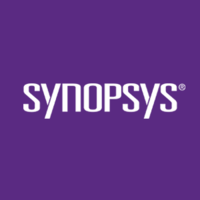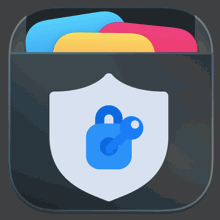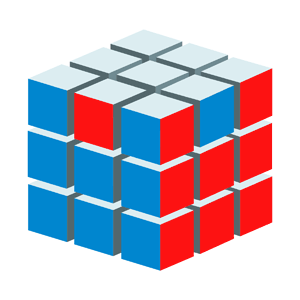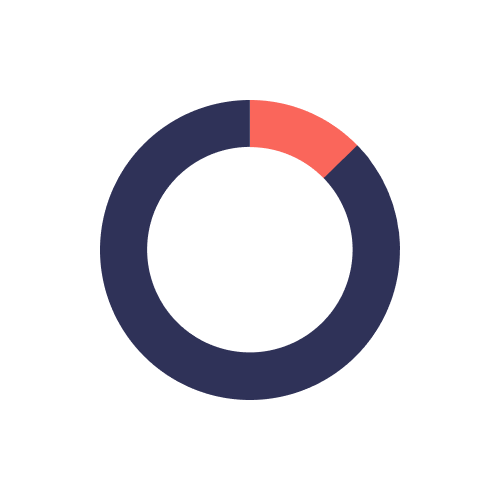Description

BKP365

Snyk
Comprehensive Overview: BKP365 vs Snyk
As of my last update, there isn't specific product information available for "BKP365" in the context of technology or software markets. It's possible that BKP365 is a product or service that has been released or updated after my knowledge cutoff date or it might be lesser-known in the public domain. However, I can provide a comprehensive overview of Snyk, a widely recognized company in the cybersecurity and developer tools market.
Snyk Overview
a) Primary Functions and Target Markets:
-
Primary Functions: Snyk is a security platform designed specifically for developers. Its primary focus is on identifying and fixing vulnerabilities in open-source libraries, container images, Kubernetes applications, and cloud infrastructure from the development stage. Snyk integrates seamlessly into the development workflow to ensure continuous security testing throughout the software development lifecycle.
-
Key functionalities include:
- Open Source Security: Scans and monitors dependencies to identify existing vulnerabilities.
- Container Security: Analyzes container images for vulnerabilities and provides recommendations for remediating issues.
- Infrastructure as Code (IaC) Security: Detects misconfigurations in IaC templates (such as Terraform, AWS CloudFormation).
- Code Security: Identifies vulnerabilities directly in developers’ codes.
-
Target Markets: Snyk primarily targets developers, DevOps teams, and enterprises that rely heavily on open-source software, containers, and cloud technologies. Its tools are beneficial for organizations adopting DevSecOps practices, aiming to integrate security into the agile development process and automate security testing.
b) Market Share and User Base:
As of my last update, Snyk has been recognized as a leader in the developer-first security market with significant growth in its user base and market penetration. The company has experienced rapid adoption due to the increasing emphasis on integrating security earlier in the development process (shift-left security).
Snyk has secured substantial funding rounds, signaling confidence from investors and growth in enterprise adoption. While specific current market share figures are proprietary and can change, Snyk's robust feature set and recent funding suggest it has a strong presence in the DevSecOps tools market.
c) Key Differentiating Factors:
-
Developer-Centric Approach: Snyk's tools are designed with a focus on developers, offering seamless integrations into development environments and tools such as GitHub, GitLab, Docker, and more.
-
Comprehensive Security Coverage: Snyk covers a broad range of security needs, from open source, containers, and IaC to direct code vulnerabilities, providing a unified platform for developers and security teams.
-
Ease of Use and Integration: Snyk's products are known for their ease of use, with intuitive user interfaces and robust CI/CD integration capabilities, making them suitable for modern agile workflows.
-
Real-Time Remediation Guidance: It offers actionable remediation advice, often including automated pull request generation with fixes, which aids developers in efficiently addressing security issues without impeding development speed.
Without specific information on BKP365, it's challenging to provide comparative insights or detailed differentiating factors directly between BKP365 and Snyk. If BKP365 is related to a specific area like backup solutions or another technological niche, it might have distinct functions, markets, and differentiators outside the scope of Snyk's offerings. For the latest and most precise comparative data, one would need to consult the latest industry reports or press releases from the respective companies.
Contact Info

Year founded :
2006
+91 92120 00234
Not Available
India
Not Available

Year founded :
2015
Not Available
Not Available
United States
http://www.linkedin.com/company/snyk
Feature Similarity Breakdown: BKP365, Snyk
To provide a feature similarity breakdown for BKP365 and Snyk, let’s examine the core features, user interfaces, and any unique features of each product.
a) Core Features in Common
-
Security and Vulnerability Management:
- Both BKP365 and Snyk focus on security, with tools to identify vulnerabilities in code and dependencies.
-
Integration Capabilities:
- Both tools offer integrations with CI/CD pipelines and popular development platforms, enabling seamless deployment and monitoring within existing workflows.
-
Dependency Scanning:
- They provide scanning for open-source dependencies, helping developers identify known vulnerabilities in libraries and frameworks used in their applications.
-
Automated Remediation:
- Automated suggestions for fixing vulnerabilities, such as proposing updates to vulnerable libraries, are available in both products.
-
Reporting and Analytics:
- They both provide comprehensive reports and analytics on vulnerabilities, exposure, and trends over time.
b) User Interface Comparison
-
BKP365:
- BKP365 typically offers a user interface that is tailored towards broader backup and recovery tasks alongside specific security features, providing dashboard views for quick status checks and detailed drill-downs for more granular control.
- The interface might be comprehensive, consolidating various features under centralized administration panels.
-
Snyk:
- Snyk's user interface is generally clean and developer-friendly, focusing specifically on security from a developer’s perspective. It emphasizes easy navigation through issues, with integrations directly into development environments like IDEs.
- Snyk often offers inline suggestions and fixes, integrating directly within the tools developers use most.
c) Unique Features
-
BKP365:
- BKP365 might come with additional features centered around data backup, recovery, and resilience, beyond just security scanning. Features like disaster recovery and data-loss prevention could be integral parts of its offering.
- It may also include unique data management and compliance tools that cater to broader IT operations needs.
-
Snyk:
- Snyk uniquely positions itself with developer-centric tools and detailed integration capabilities for developers. It offers a broad range of integrations specifically for code repositories, and CI/CD systems, and often includes native plugins for popular IDEs.
- Snyk may also provide unique insights into Infrastructure as Code (IaC) and container security, with specialized scanning capabilities for cloud-native applications and configurations.
In summary, while BKP365 and Snyk share several core features focusing on security and integration, BKP365 may offer additional functionalities around backup and broader data management. In contrast, Snyk’s unique strengths lie in its in-depth developer tools and container/IaC security capabilities.
Features

Data Security
Restore Options
Backup Management
User-Friendly Interface

Ongoing Monitoring & Alerts
Integration & Compatibility
Security Vulnerability Management
Developer-Friendly Tools
Best Fit Use Cases: BKP365, Snyk
BKP365
a) Types of Businesses or Projects Best Suited for BKP365:
BKP365 is typically a cloud-based backup and disaster recovery solution, though specific features might vary depending on the offering. Generally, such platforms are optimal for:
- Small to Medium-Sized Enterprises (SMEs): Companies looking for an affordable and scalable cloud-based backup solution to secure their data can benefit from BKP365’s services.
- Organizations with Limited IT Resources: Businesses that lack a robust internal IT team can utilize BKP365 for its ease of use and managed service aspects.
- Industries with Compliance and Data Security Needs: Sectors like healthcare, finance, and legal, where data integrity and compliance with regulations (e.g., HIPAA, GDPR) are crucial, can use BKP365 to ensure secure backup and recovery processes.
- Remote Work Setups: Companies with distributed workforces or remote teams can use BKP365 to ensure consistent data backup from various locations.
d) Catering to Different Industry Verticals or Company Sizes:
- Small Businesses: BKP365 offers simple, cost-effective backup solutions without the need for heavy infrastructure investments.
- Mid-Market Enterprises: With scalable options, BKP365 can expand as businesses grow, providing more advanced features when required.
- Industries with High Data Security Needs: By offering encryption and other security features, BKP365 caters to industries where data protection is paramount.
Snyk
b) Scenarios Where Snyk is the Preferred Option:
Snyk is a popular platform for integrating security into the development lifecycle, particularly focusing on open-source software security, containers, and infrastructure as code. It excels in:
- DevOps and Agile Environments: Organizations adopting DevOps practices find Snyk useful to implement security earlier in the software development lifecycle (shift-left security), allowing for rapid and secure deployments.
- Open Source Software Projects: Projects that heavily rely on open-source components benefit from Snyk's ability to identify vulnerabilities in dependencies and suggest fixes.
- Containerized Applications: Teams working with containerization technologies like Docker and Kubernetes can leverage Snyk to monitor and secure container images.
- Continuous Integration/Continuous Deployment (CI/CD) Pipelines: Snyk integrates well with CI/CD tools, making it suitable for environments that require seamless security checks within automated deployment processes.
d) Catering to Different Industry Verticals or Company Sizes:
- Software Development Companies: From small startups to large enterprises, any company involved in software development can benefit from Snyk's security integrations.
- Highly Regulated Industries: Industries such as finance, healthcare, and government, where software security compliance is critical, can use Snyk to ensure they adhere to strict standards.
- Enterprise-Scale Organizations: Large companies with extensive software products can use Snyk to continuously manage the security of their software development projects at scale.
In summary, BKP365 suits businesses focused on reliable, secure data backup and recovery, particularly those with limited in-house IT resources. Snyk is ideal for environments where integrating security into the software development process is critical, particularly those leveraging open-source components, containers, and rapid deployment pipelines. Each caters to different sectors by addressing unique needs related to data management and software security.
Pricing

Pricing Not Available

Pricing Not Available
Metrics History
Metrics History
Comparing teamSize across companies
Conclusion & Final Verdict: BKP365 vs Snyk
To provide a thoughtful conclusion and final verdict for BKP365 and Snyk, we must first consider and weigh the distinct features, benefits, and potential drawbacks of each product.
a) Best Overall Value:
When determining the best overall value between BKP365 and Snyk, it's crucial to compare their core functionalities and the problems they solve:
-
BKP365: Primarily a backup solution, offers robust data protection and recovery features, ideal for organizations prioritizing data safety and quick recovery options.
-
Snyk: A security tool focused on open source and dependency vulnerability scanning within the development lifecycle, particularly beneficial for developers seeking to enhance their security posture without significantly increasing workload.
Given that these products cater to different needs (backup and security), the “best overall value” is subjective and highly dependent on an organization's specific priorities. For companies whose primary concern is securing software development processes, Snyk offers substantial value. Conversely, for organizations whose focus lies in ensuring data integrity and recovery capability, BKP365 may present better value.
b) Pros and Cons of Each Product:
BKP365:
-
Pros:
- Comprehensive backup and restoration capabilities.
- Automated backup processes reducing manual intervention.
- Scalable solutions catering to businesses of varying sizes.
- Ensures business continuity through reliable data recovery options.
-
Cons:
- Limited to backup and data recovery; doesn’t address cybersecurity vulnerabilities.
- May require significant storage resources depending on the data volume.
- Can incur additional costs for extensive cloud storage.
Snyk:
-
Pros:
- Excellent for integrating security checks within the continuous integration/continuous deployment (CI/CD) pipeline.
- Facilitates proactive identification and remediation of vulnerabilities in open-source dependencies.
- Rich reporting and monitoring features tailored for developers and security teams.
- Regular updates and a robust community keep the tool effective against new threats.
-
Cons:
- Primarily focused on software development security; doesn’t offer backup capabilities.
- May present a learning curve for teams unfamiliar with security tools.
- Subscription costs can be significant for small startups or growing businesses.
c) Recommendations for Users:
For users trying to decide between BKP365 and Snyk, here are some recommendations:
-
Assess Your Core Needs: If your primary requirement is to secure applications and manage vulnerabilities in your codebase or dependencies, Snyk is likely the better choice. However, if the goal is robust data protection with efficient recovery processes, BKP365 would be more suitable.
-
Consider Integrations and Ecosystem Compatibility: Evaluate how well each product integrates with your existing systems and workflows. Snyk, for example, should seamlessly integrate with your CI/CD pipelines if you’re focusing on development security.
-
Budget and Resource Allocation: Analyze your budget constraints and resource allocations. Determine if either product presents financial or resource-related challenges, and weigh those against the expected benefits.
-
Long-term Strategy: Look at the broader strategy and growth plans of your organization. A growing tech company with intense development cycles might benefit more from Snyk's security features, whereas a large enterprise concerned about disaster recovery and compliance might prioritize BKP365.
Ultimately, organizations may find considerable strategic value in deploying both solutions, leveraging Snyk for its security features in development projects and BKP365 for its data protection and recovery strengths, ensuring comprehensive coverage across potential digital threats and data risks.
Add to compare
Add similar companies




